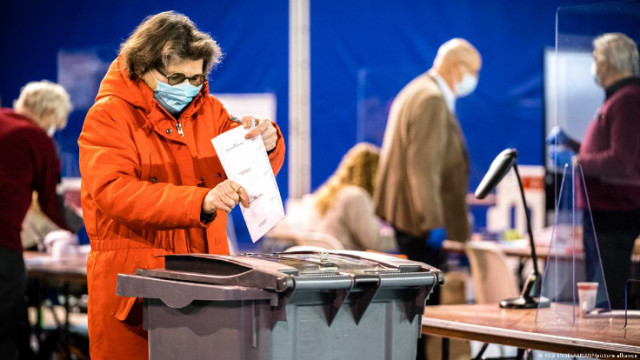Dutch voters will on Thursday (today) commence a four-day marathon election across the 27 nations of the European Union (EU).
The EU’s 370 million voters are called to the polls at a time of deep geopolitical uncertainty for the bloc.
The bulk of countries to participate include: France and Germany will vote on Sunday, but the opening contest in The Netherlands will offer a glimpse of the strength of the far-right — whose predicted surge is the election’s top issue.
The Freedom Party (PVV) of Geert Wilders is projected to top the EU polls.
The Netherlands is just one of a long list of countries where nationalist, far-right and other Eurosceptic forces are expected to come out on top in the EU vote.
Polls suggest the hard-right could grab around a quarter of the new parliament’s 720 seats — significant enough to sway EU's policy.
The results could also impact Brussels’ approach to climate change, relations with the United States and China, support for Ukraine, EU enlargement, and adapting to tech and AI innovations.
Current commission chief Ursula von der Leyen, a German polyglot, is trying for a second term.
If tapped by member states, von der Leyen will still need to lock in support from parliament — or it will be back to square one and potentially months before the EU’s next boss is known.
“These are troubled times, and there’s a need to move fast,” said Sebastien Maillard, of French, think tank the Jacques Delors Institute — warning of the risks of a leadership vacuum.
“What’s at stake is Europe’s ability to embody democracy, to find compromises, to stay sufficiently united… faced with (Russia’s Vladimir) Putin, faced with China, faced with the future American president,” said Maillard.
The prospect of Donald Trump triumphing in November US elections has focused European minds — but also given a boost to parties seeing alignment with Trump’s nationalist tenets.
In several countries, voters see European elections chiefly as a way to send messages to their government — over everything from the cost of living to law and order concerns, or the popularity of a national leader.
For Nathalie Brack, professor of political science at Brussels’ ULB University, what stands out about this election is not so much the surge of the far-right, but how far it has been “normalised.”
AFP




















